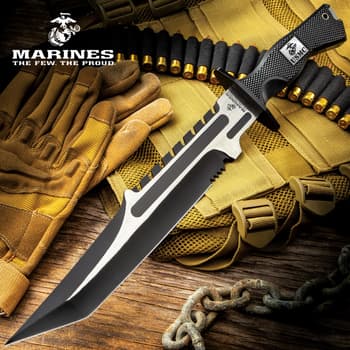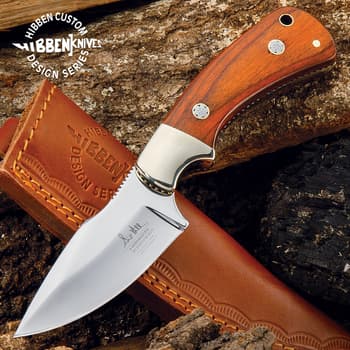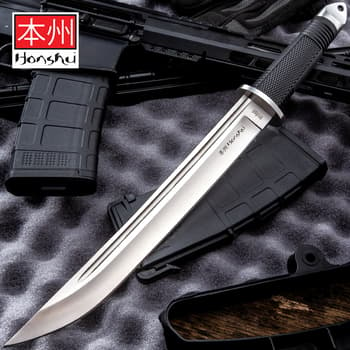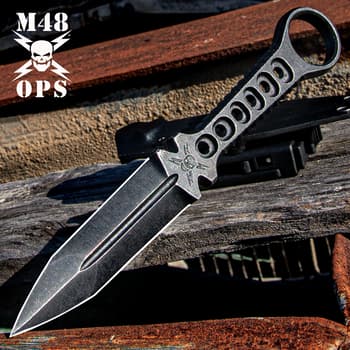Anatomy of a Fixed Blade

By Desiree Weeks
When it comes to tools, one of the oldest, tried and true pieces is the fixed blade knife. As one of the earliest tools, it’s believed that knives date back 2.5 million years when they were made of wood, bone, and stone. While the materials and looks may have changed over the years, knives are essential to our everyday life, whether it be for protection, survival, or simply cooking a meal.
The term “fixed blade” refers to the fact that the blade is permanently fixed into position, unlike folding knives. Since fixed blade knives have the tang secured into the handle scales, many times they prove to be more powerful than their folding counterparts. Here’s a bit more info on this beloved weapon and a few selections from our site.
Identifying the Parts
While everyone has certainly seen a fixed blade knife, there’s a bit more terminology surrounding them than simply “handle” and “blade.”
Working our way from back to front, the butt, also known as the pommel, is the end of the handle with the handle serving at the grip of the knife. Some fixed blade knives have pommels that serve a specific purpose such as a glass breaker. Handles can be found in a variety of materials, with some featuring finger grooves or ornate detailing.
Moving forward, the term “blade” refers to everything in front of the handle. There are parts between the blade and handle or on the blade itself that may not be found on every knife or may look different depending on the design. Between the handle and blade, the bolster, which is a thick metal shoulder at the front of the handle, and guard, which keeps the hand from slipping, can be found on some knives. The choil is the indent found where the blade meets the handle and is sometimes large enough to serve as a finger grip. The ricasso is the unsharpened part of the blade above the guard or handle, pending the make of the knife.
The spine of the knife refers to the back of the blade which is the unsharpened side while the cutting edge refers to, you guessed it, the sharp, cutting side of the blade. The curved section of the cutting edge is referred to as the belly. The point or tip of the blade is the piercing point of the blade.
On some knives you may also find a fuller, also known as a blood groove, which is a depression running parallel to the spine.
Fixed Knife Examples
Here are a few fixed blade knives available now at BudK. Be sure to check out the full list of fixed blade knives we have to offer too!
United Cutlery Hibben Legacy Combat Fighter Knife II
Renowned knifemaker Gil Hibben teamed up with his son Wesley to bring collectors the United Cutlery Hibben Legacy Combat Fighter Knife II. This impressive fixed blade knife measures 12” overall and has a 5 7/8” 7Cr17 stainless steel blade with spear point tip and blood groove. The blade extends from polished brown pakkawood handle scales with thumb rest and trigger-finger grip. Each blade is laser serialized and etched with Gil and Wesley’s signatures.
Shinwa Bloodwood Cleaver Knife with Sheath
Showcasing just how different fixed blade knives can look is the Shinwa Bloodwood Cleaver Knife with Sheath. The blade of this knife is styled like a cleaver and made from 3Cr13 stainless steel with raised raindrop pattern and thru-holes. Pakkawood handle scales secure the tang and feature etched kanji and an open ring pommel.
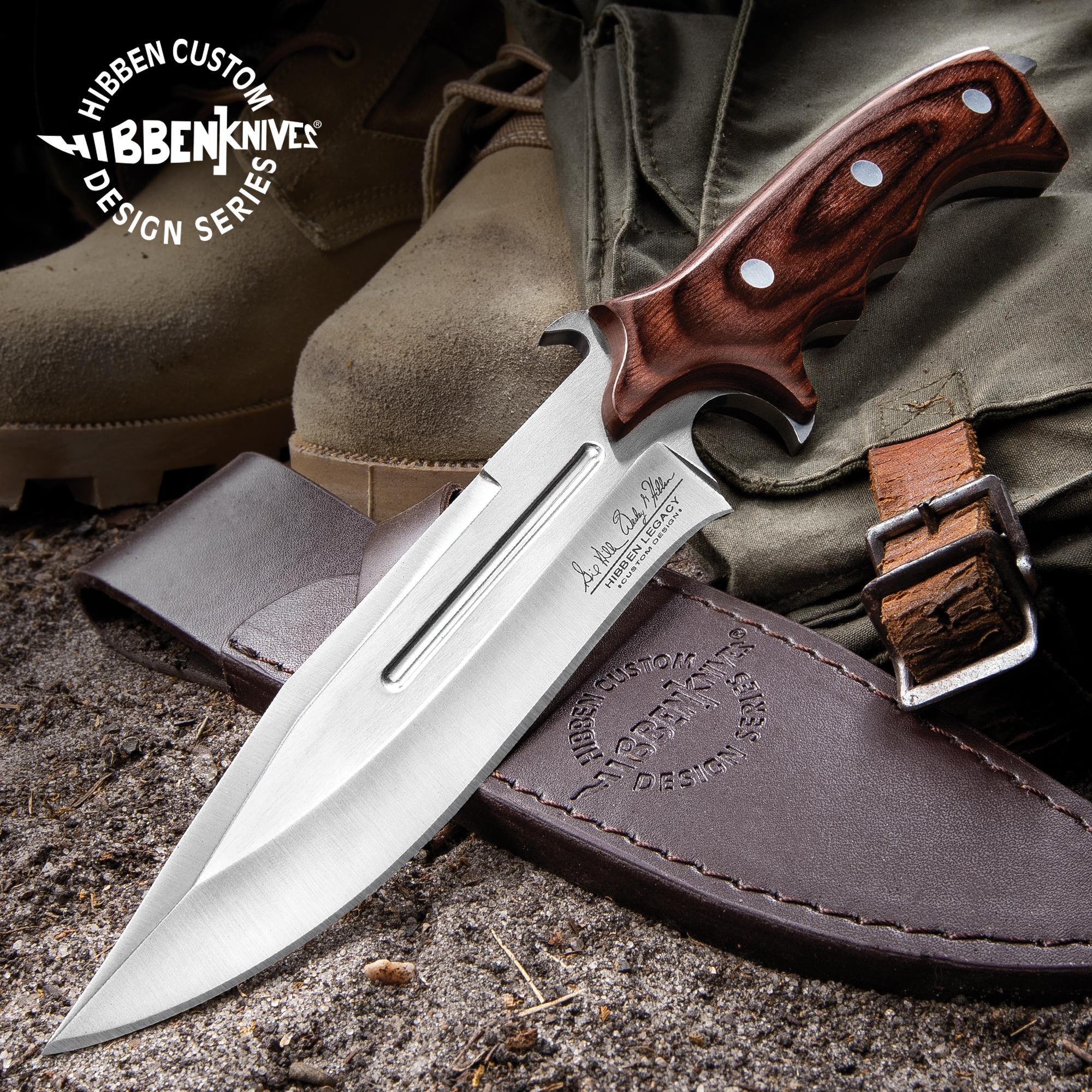 |
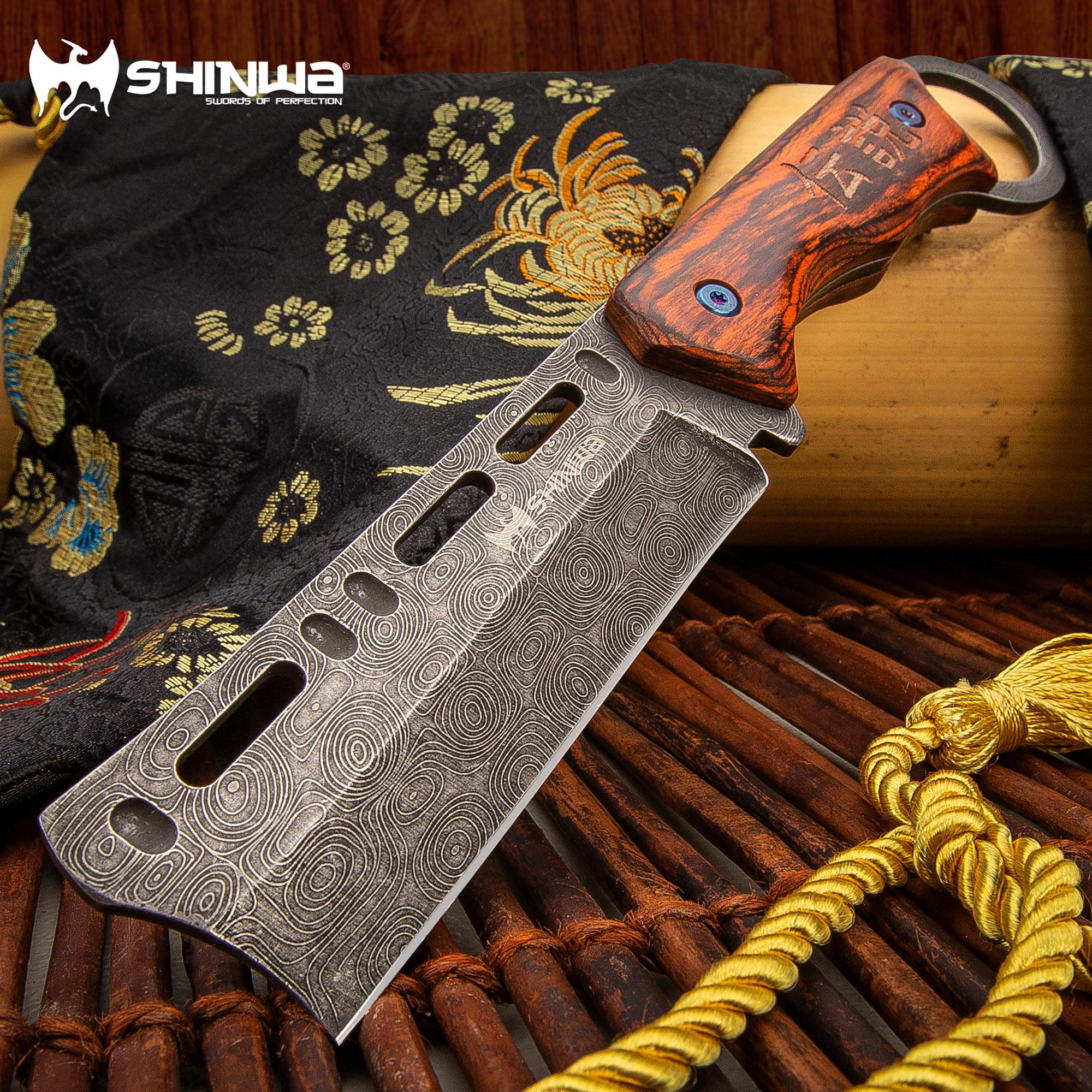 |
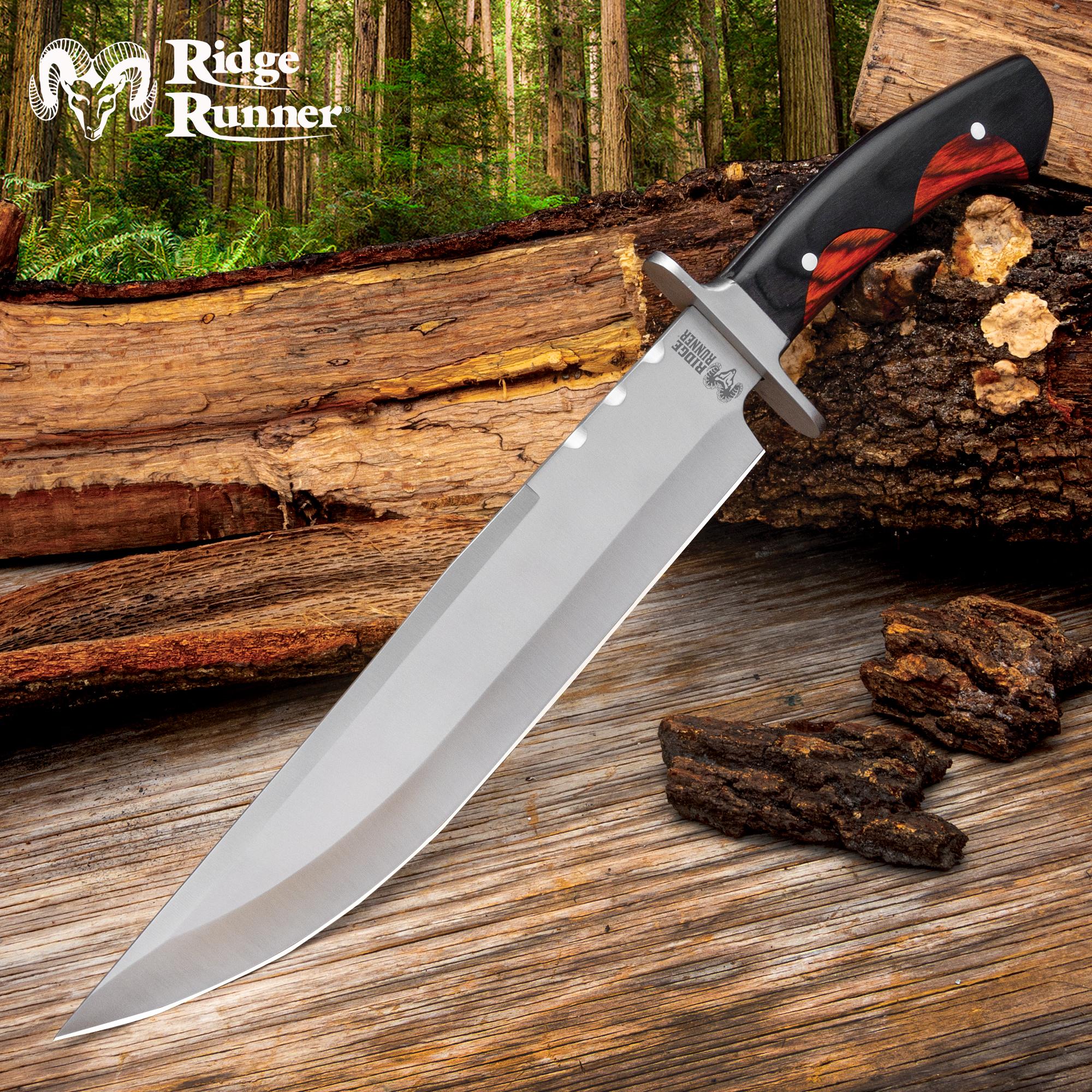 |
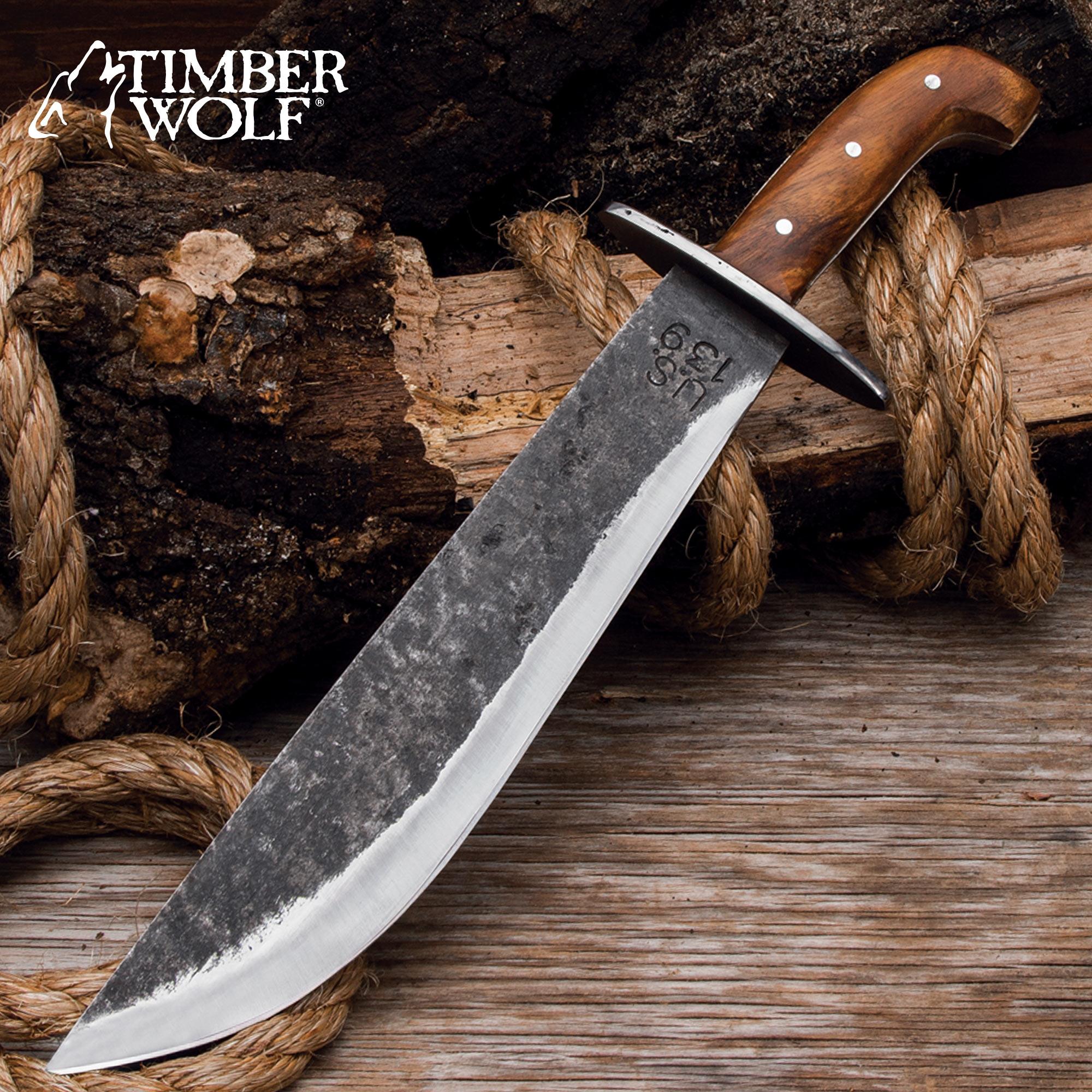 |
 |
 |
 |
 |
Ridge Runner Peruvian Bowie Knife
If you’re in the market for an impressive piece that is sure to draw attention, check out the Ridge Runner Peruvian Bowie Knife. Measuring 16 7/10”, this bowie knife has an imposing 11” 440 stainless steel clip point blade. The handle is made of black and brown handle scales and secured to the tang by stainless steel pins.
Timber Wolf US 139 Survivor Knife
Up to any survivalist tasks is the Timber Wolf US 139 Survivor Knife. Both the blade and handguard are made of rough-forged carbon steel. The handle is made of brown wooden handle scales that are secured to the tang with brass pins and has a curve toward the top.
Related Products






















